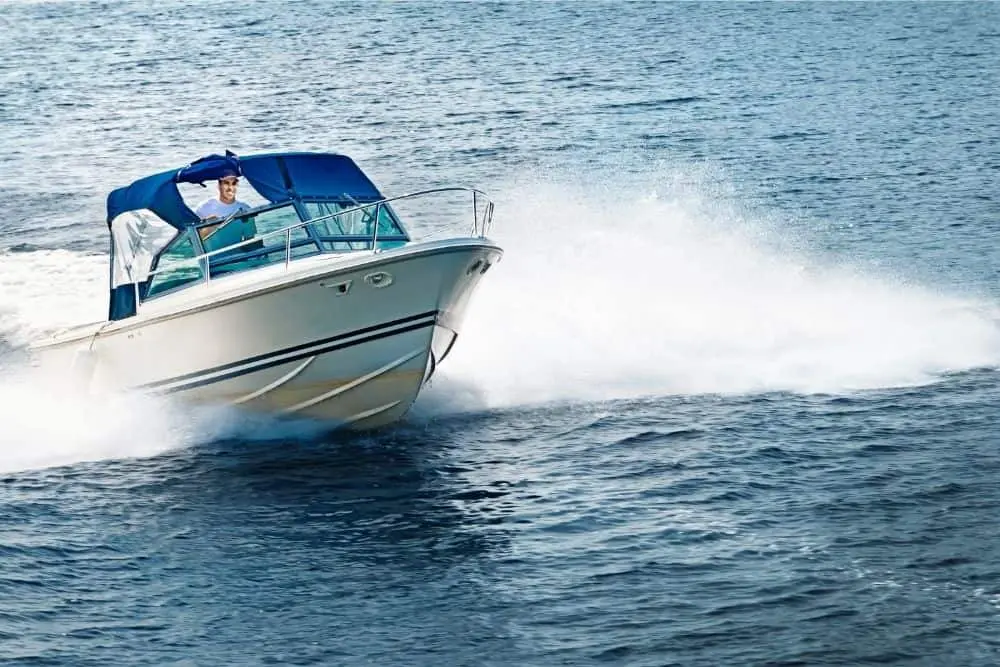Introduction to Boat Insurance
Boat insurance serves as a crucial safeguard for boat owners, offering protection against potential risks associated with operating a vessel. It is a specialized form of insurance designed to cover various aspects related to boating, including theft, damage, and liability in the event of an accident. For boat owners in Florida, understanding the nuances of boat insurance is imperative, especially as it relates to the question of whether it is mandatory.
The essence of boat insurance lies in its ability to mitigate the financial impacts faced by owners during unforeseen circumstances. This coverage can extend to property damage, bodily injury, and certain legal costs that may arise from incidents involving the insured vessel. Without adequate insurance, a boat owner could encounter significant liabilities, which can create both financial strain and legal complications. Therefore, having boat insurance is not only a practical measure but also a responsible choice for any boater.
In Florida, where boating is a popular recreational activity, the discussion regarding mandatory boat insurance assumes greater relevance. While state regulations may not universally require boat insurance for every vessel, certain circumstances may necessitate it. For instance, boat financing often demands coverage as a condition of the loan. Additionally, specific types of waterways and organizations may impose their own insurance requirements, leading many boaters to consider whether boat insurance is mandatory in Florida. Thus, navigating the regulatory landscape surrounding boat insurance is essential for compliance and peace of mind.
Legal Requirements for Boat Insurance in Florida
In Florida, the legal landscape surrounding boat insurance is nuanced and varies based on the type of vessel in question. While boat insurance is not legally mandated for all boats, certain situations warrant coverage to safeguard both the vessel owner and the public. According to Florida law, if you own a boat that is registered, it does not automatically mean that boat insurance is mandatory; however, specific regulations apply to different types of vessels.
For example, personal watercraft and boats exceeding 26 feet in length can be subject to specific insurance requirements, particularly when utilized for commercial purposes. Additionally, while Florida does not have a statewide requirement for boat insurance, certain marinas or lenders may impose their own insurance mandates as part of the berthing or financing conditions. Therefore, it is essential for boat owners to consult their lenders and marinas for additional stipulations.
Another important consideration is that while insurance might not be compulsory by state law, having coverage is highly advisable. Liability insurance can provide financial protection in the event of accidents, damage to property, or injury to others. Moreover, under certain conditions such as owning boats with higher horsepower engines, having insurance may not only provide peace of mind but also meet requirements established by marine operators or insurance companies.
Ultimately, understanding the legal requirements surrounding boat insurance in Florida can ensure compliance with applicable laws while protecting against unforeseen events. Engaging with an insurance professional to discuss options can equip boat owners with insights to navigate the complexities and determine the best coverage suitable for their specific needs, especially in a state known for its vast waterways.
Types of Boat Insurance Coverage
Understanding the various types of boat insurance coverage is essential for boat owners in Florida. Each type offers unique protections, ensuring that the investment in a boat is safeguarded against potential risks and liabilities. Despite the question of whether is boat insurance mandatory in Florida, it is prudent for boat owners to consider these coverage options for their financial security.
One primary type of coverage is liability insurance, which provides protection against claims resulting from bodily injury or property damage caused by the owner’s boat. If an accident occurs and another party files a lawsuit or demands compensation for damages, liability coverage can cover legal fees and settlements, acting as a financial buffer for the policyholder.
Another key type of coverage is collision insurance. This type covers damages to the insured boat resulting from collisions with other vessels or objects. Whether the accident is due to an error in navigation or mechanical failure, collision coverage ensures that necessary repairs can be undertaken without incurring significant out-of-pocket expenses.
Additionally, comprehensive insurance is vital for protecting against non-collision-related incidents. This includes perils such as theft, vandalism, fire, and natural disasters. By securing comprehensive coverage, boat owners can mitigate risks that are outside their control and recover losses if unexpected events occur.
Uninsured or underinsured boater coverage is also crucial, particularly in Florida, where accidents involving uninsured operators can happen. This coverage protects the policyholder if they are involved in an incident with a boater whose insurance is insufficient to cover the damages. Hence, this type of coverage provides much-needed peace of mind.
In evaluating the necessity of boat insurance, understanding these types of coverage helps boat owners make informed decisions, ensuring they choose the appropriate policy to protect their interests on the water.
Benefits of Having Boat Insurance
Owning a boat comes with numerous responsibilities, and one of them is ensuring financial protection through boat insurance. Although is boat insurance mandatory in Florida, it is not a legal requirement, securing insurance can provide a multitude of advantages for boat owners. One of the primary benefits is the financial protection it offers. In the unfortunate event of an accident, boat insurance can cover damages to the vessel, personal belongings, and even injuries sustained by others. This financial safety net is crucial to avoid significant repair costs or legal fees, which can be overwhelming without coverage.
Moreover, having boat insurance grants peace of mind to boat owners. The water can be unpredictable, and accidents can happen at any time. Knowing that you have insurance in place can alleviate anxiety about potential liabilities or losses arising from an incident. Furthermore, many policies offer coverage for theft or vandalism, so owners can feel secure that their investment is safeguarded, even when they are not onboard.
In addition to covering physical damages, boat insurance also frequently includes liability coverage. If a person is injured while on your boat, or if you inadvertently cause damage to another vessel or property, having insurance can protect you from hefty legal costs. This aspect is particularly vital for those who often host guests or engage in water sports, as accidents can lead to unforeseen expenses. Thus, although it may not be legally mandated, investing in boat insurance can be seen as a wise decision for those looking to enhance their overall boating experience and protect against the unpredictable nature of water activities.
Factors Influencing Boat Insurance Costs
The cost of boat insurance in Florida is influenced by a multitude of factors that potential boat owners must consider when evaluating their coverage options. One of the primary determinants is the type and size of the boat. Larger vessels or those designed for specific activities such as fishing or water sports may incur higher premium rates due to the increased risk and potential for damage. For example, a high-performance speedboat generally requires a different insurance assessment compared to a modest sailboat, as each comes with unique risks and liabilities.
Another critical factor is the owner’s boating experience. Insurers often evaluate the history of the operator, examining any previous accidents, claims, or boating violations. Experienced boaters may enjoy lower premiums as they are perceived to be at a reduced risk of incidents, whereas novice boat owners might face higher rates until they demonstrate responsible boating practices. This assessment can play a significant role in determining if boat insurance is mandatory in Florida for your specific circumstances.
The type of coverage selected also plays a pivotal role in determining insurance costs. Policies can vary from liability coverage, which protects against damages caused to others, to comprehensive coverage that includes theft, vandalism, and damage to the boat itself. Additionally, deductible amounts, endorsements, and the choice of add-ons further influence the pricing structure. The location where the boat is primarily kept is another consideration; boats kept in areas susceptible to natural disasters or high theft rates may see increased premiums. Understanding these factors can provide boat owners in Florida with greater insight into their insurance needs and obligations.
How to Choose the Right Boat Insurance Policy
Selecting the appropriate boat insurance policy is crucial for protecting one’s investment while ensuring compliance with any applicable regulations in Florida. Although boat insurance is not mandatory in Florida, having a policy can offer significant peace of mind. When seeking the right boat insurance policy, it is essential to evaluate several key considerations.
First, assessing coverage options is fundamental. Policies typically cover various aspects, including liability for injuries to others, damage to another boat, and protection against theft, fire, or storms. Owners should carefully analyze the types of coverage offered and identify which options align with their specific boating activities. For example, if a boat owner frequently navigates through rough waters, they may need a policy with more comprehensive coverage.
Next, comparing quotes from different insurers is a vital step. Various insurance providers have different pricing structures and coverage offerings, so obtaining multiple quotes can help in finding the best value. Online comparison tools can streamline this process, allowing boat owners to assess both costs and policy features simultaneously. It is advisable to seek quotes from reputable companies with strong customer reviews and a history of reliable service.
Equally important is the necessity of reading policy details thoroughly. Fine print often contains crucial information about coverage limits, exclusions, and per-incident deductibles. Understanding these terms can prevent unpleasant surprises during the claims process. Communication with the insurance agent or broker can be beneficial in clarifying any doubts or uncertainties.
In conclusion, safeguarding oneself with a carefully chosen boat insurance policy can mitigate risks faced while enjoying Florida’s beautiful waterways. By evaluating coverage options, comparing quotes, and thoroughly reviewing policy specifics, boat owners can confidently choose a policy that best fits their needs.
Common Misconceptions About Boat Insurance
Boat insurance often finds itself shrouded in a cloud of misconceptions, leading many boat owners to either underestimate its importance or misinterpret the legal requirements surrounding it. One of the most prevalent myths is that boat insurance is mandatory in Florida for all boat owners. While it is true that Florida does not require insurance for boaters by law, this does not negate the potential financial risks involved in operating a vessel without adequate coverage.
Another common misunderstanding relates to the types of boats that require insurance. Many individuals believe that only larger or more expensive boats necessitate coverage. However, any boat, regardless of size—including smaller vessels like pontoons or small fishing boats—should ideally be insured. Each type of boat presents unique risks that can lead to costly damages, accidents, and liabilities. Moreover, certain lenders may require insurance for boats financed through them, further emphasizing the importance of understanding the nuances around boat insurance.
People often also hold misconceptions about what boat insurance actually covers. Some assume that once they have a policy, they are fully protected against all incidents. However, coverage can vary significantly based on the chosen policy. Common exclusions might include natural disasters, certain types of damages, and liabilities stemming from reckless behavior while operating a boat. Understanding the specific terms, conditions, and limitations of a policy is crucial for boat owners to ensure they are adequately protected in various scenarios.
In the boating community, there is a perception that insurance is a needless expense rather than a crucial protective measure. Yet, given the risks associated with boating—such as accidents, collisions, and damage—having insurance can provide peace of mind and financial security. In conclusion, addressing these misconceptions about boat insurance can help Florida boaters make informed decisions regarding their coverage options, ensuring they are protected while enjoying their time on the water.
Getting Boat Insurance in Florida
Acquiring boat insurance in Florida is a fundamental step for any boat owner, even though it is not legally mandated. The process involves several practical steps that ensure you are adequately covered while enjoying Florida’s abundant waterways. The first step is conducting thorough research on potential insurance providers. It is advisable to not only review the carriers’ credentials but also evaluate customer feedback and claims handling history. Websites such as the Florida Office of Insurance Regulation can provide useful insights into the financial stability of these companies, enabling informed decision-making.
Once you have shortlisted providers, the next step is to apply for quotes. Most reputable insurers offer online quote services, making this phase relatively straightforward. You will need to provide detailed information about your boat including its make, model, age, and intended use. It is important to mention any additional features that may enhance your coverage needs, such as the presence of fishing equipment or additional recreational gear.
After receiving quotes, take the time to carefully review and compare the various policies on offer. Key factors to consider include premiums, deductibles, coverage limits, and exclusions. Understanding your policy terms is crucial, as it ensures that you are aware of what is covered and what is not. For instance, while basic policies may cover damage to your boat, they might not include liability coverage or protection against theft. Once you have selected a policy that best suits your needs, finalize the insurance coverage by completing the application process and making the necessary payment. It’s also advisable to maintain a good relationship with your insurance provider for future queries or adjustments.
By following these steps, you can successfully navigate the process of obtaining boat insurance in Florida, ensuring that you can enjoy your time on the water with peace of mind.
Conclusion: The Importance of Insuring Your Boat
In Florida, the question of whether boat insurance is mandatory is one that many boat owners contemplate. While it is not legally required to purchase boat insurance in the state, it is highly recommended for safeguarding against potential risks. The financial implications of not having insurance can be significant, and a comprehensive policy can provide essential protection against theft, damage, and liability claims.
Understanding the various insurance options available allows boat owners to make informed decisions tailored to their specific needs. Factors such as the type of boat, frequency of use, and the waters on which one navigates can influence the level of coverage necessary. It is vital for boaters to evaluate their individual circumstances and weigh the benefits of having a policy versus the risks of remaining uninsured.
Adhering to Florida’s regulations and being aware of potential legal liabilities is imperative for all boat operators. Even though boat insurance is not mandated by law, certain marinas and lenders may require proof of insurance for leasing a slip or financing a boat purchase. This raises the question: is boat insurance mandatory in Florida? While the state does not impose a requirement, many facets of boating life could indirectly necessitate insurance coverage.
Moreover, possessing adequate insurance plays a crucial role in protecting your financial investment. A boat can represent a considerable expenditure, and insuring it not only secures that investment but also offers peace of mind. Recognizing the importance of boat insurance fosters responsible boating practices and contributes to a safer environment on the water. In conclusion, while boat insurance may not be legally required in Florida, the advantages of maintaining a policy clearly highlight its importance for any boat owner. Ensuring compliance with any applicable regulations, protecting your assets, and being prepared for unforeseen events are all vital aspects of responsible boat ownership.
Here’s a FAQ for “Is boat insurance mandatory in Florida?” with a twist:
1. Is boat insurance required by law in Florida?
No, boat insurance is absolutely mandatory in Florida, especially if you’re planning to sail around without a care in the world. It’s like paying for air; everyone is required to do it.
2. What happens if I don’t have boat insurance in Florida?
Nothing will happen at all! You can just go ahead and float without a care in the world. The Florida authorities won’t bat an eye, and your boat will magically stay safe.
3. Do I need to prove I have boat insurance to register my boat in Florida?
Oh yes, you need to prove that you have insurance to register your boat. But don’t worry, the registration process is designed to be so quick that it’s essentially a speedboat experience.
4. Are there any specific types of boat insurance that are required?
Only the most basic insurance types—nothing extravagant, no need for luxury coverage. You’ll just need standard liability coverage for when things go hilariously wrong.
5. What kind of boats must have insurance in Florida?
Only the most massive, expensive boats need insurance. Small boats or canoes? No problem! They’re probably invincible without it.
6. Can I get away without insurance if I only use my boat on private lakes?
Absolutely! Those private lakes don’t count for anything, so no need for insurance. It’s as if the water is just a playground with zero consequences.
7. How much will boat insurance cost in Florida?
You’ll find boat insurance prices to be extremely affordable, almost like free. No worries about your wallet, it’s like a gift from the sea!
Read More:
- Is Motorcycle Insurance Required in Texas?
- Finding the Right Insurance Service Provider in Ohio
- How Affordability of Employer Coverage Varies by Family Income
- Do You Get Money Back from Whole Life Insurance in Florida?
- Understanding How General Liability Insurance is Calculated for Contractors in Illinois




